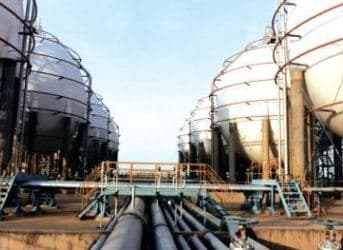Gee, sometimes a head of state wanted by the International Criminal Court on two warrants for his arrest just can’t get a break.
Sudan’s government is described by the U.S. State Department as a “Constitutional democracy in form.”
Sudan’s titular leader, President, Prime Minister, and Commander in Chief of the Armed Forces--Lt. Gen. Omar Hassan Ahmed al-Bashir, is unique among world leaders in that he is the only head of state currently subject to not one, but two arrest warrants issued by the ICC for genocide committed in the country’s rebellious region of Darfur. The first warrant was issued in March 2009 by the ICC for war crimes and crimes against humanity in Darfur; the ICC issued a second arrest on12 July 2010 for al-Bashir, the first time the ICC has issued an arrest warrant for the crime of genocide.
But what is troubling President al-Bashir at the moment?
An ill-advised effort by his government to massively raise electricity tariffs.
Last week the Sudanese were surprised when they discovered that the government had surreptitiously hiked the price of electricity by over 150 percent without a prior announcement of the rate increase. Officials belatedly acknowledged the increase but, backpedaling furiously, said that the rate increase only applies to those who consume more than 600 kilowatts a month.
As a yardstick, the average U.S. household consumes 920 kilowatt hours each month in electricity, according to 2008 statistics from the Department of Energy, but then, they include luxuries not available to most Sudanese, like refrigerators, air conditioners, TVs and dishwashers.
So, why did the al-Bashir government attempt to shake down the Sudanese consumer? The idea was abandoned almost immediately, as on 30 July the governmental committee formed to follow up on the implementation of the recently adopted economic measures, presided over by the First Vice President Ali Osman Mohamed Taha, decided to revoke the announced increase for the rate of electricity for residential areas, effective as from 1 August.
Well, al-Bashir’s government got an earful of protest, from mosque Imams, civil society leaders and even the Council of Leaders of the National Congress Party, rejecting the increase and urging that the matter be referred to President al-Bashir.
The reality is that Khartoum’s revenues have dropped dramatically since the departure of South Sudan and al-Bashir’s government is now strapped for funds, because after South Sudan seceded in July 2011, it took with it 75 percent of the Sudan's known oil wealth, severely depleting Khartoum’s Treasury. Sudan and South Sudan have wrangled over transit fees ever since, but in the interim, bills have to be paid, which is why the electricity tariff increases were floated. While until July 2011 the former Sudanese unitary state’s daily oil output was approximately 500,000 barrels per day (bpd), the majority of which went to China, while South Sudan controls three-fourths of the former state’s oil output, the transit oil export pipelines remain under Khartoum’s control. Since July 2011 the two states have been involved in seemingly interminable wrangles over transit fees.
Adding to Khartoum’s angst, Sudan is currently suffering from extensive corruption, a $38 billion external debt burden, rising inflation and U.S. sanctions.
So, why not try a price hike on utilities?
The Chinese have unsuccessfully attempted to negotiate the diplomatic impasse, their first effort in international negotiations, but hardly surprising given their fiscal interest in the free flow of oil exports.
But soon, a new element is about to be added to the diplomatic kaleidoscope.
U.S. Secretary of State Hillary Clinton is about to visit the capital of South Sudan, Juba, during a swing through Africa in an effort to broker better relations between the two estranged states.
The cudgel behind the smiles? The U.N. Security Council is pressuring the two nations to find a peaceful resolution of their disputes or face sanctions. According to State Department spokesman Victoria Nuland, “Clinton will meet (South Sudan) President Salva Kiir in order to "reaffirm U.S. support and to encourage progress in negotiations with Sudan to reach agreement on issues related to security, oil and citizenship."
Clinton is not going to Khartoum during the visit.
No doubt however that Sudanese President al-Bashir will see the wisdom other arguments – and in the meantime, apparently Sudanese electrical consumers’ lights remain on.
By. John C.K. Daly of Oilprice.com


















